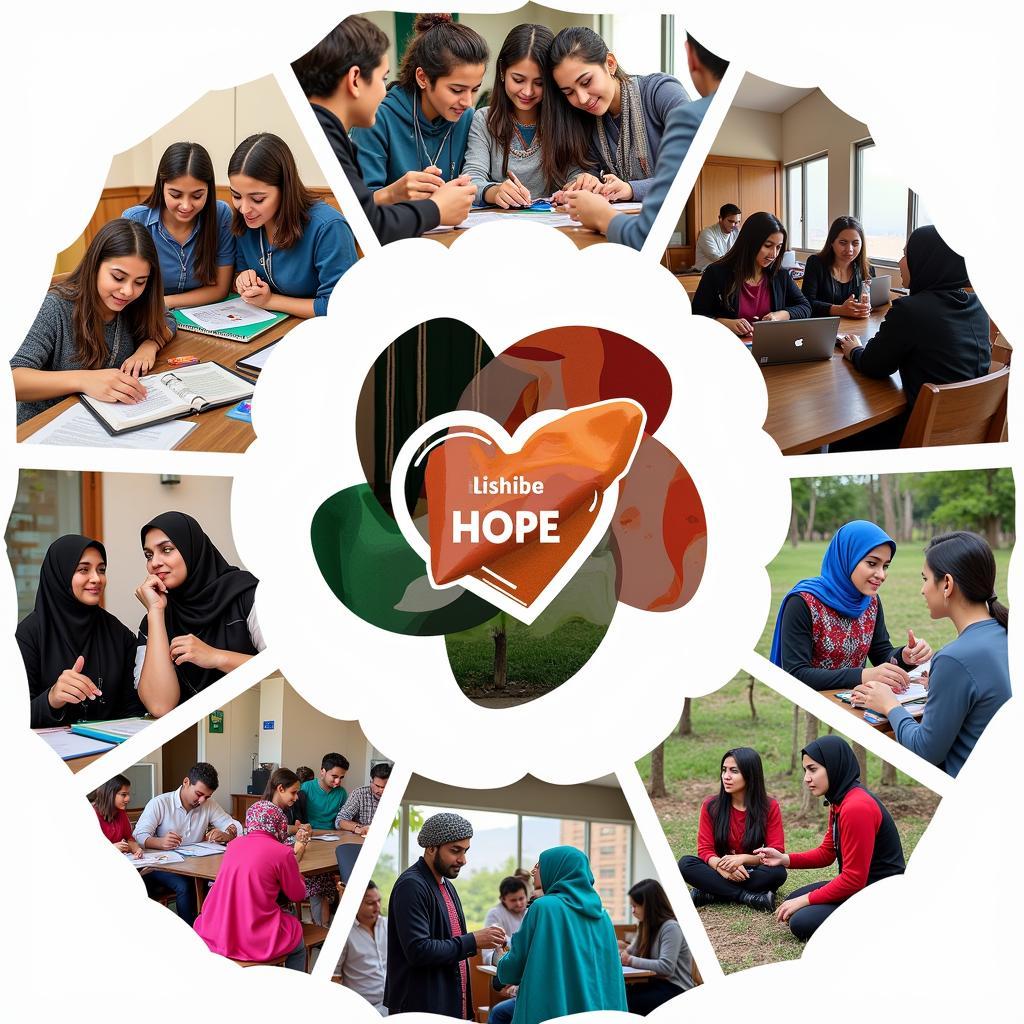National Integration In Pakistan has been a persistent challenge since its inception in 1947. The diverse ethnic, linguistic, and religious landscape of the country necessitates a strong sense of unity to overcome internal divisions and promote socio-economic development. This article explores the multifaceted aspects of national integration in Pakistan, examining the historical context, current challenges, and potential solutions.
Historical Context of National Integration in Pakistan
The creation of Pakistan based on the two-nation theory inherently presented a challenge to national integration. The geographical separation of East and West Pakistan, coupled with significant cultural and linguistic differences, ultimately led to the tragic separation of Bangladesh in 1971. This historical event underscored the importance of addressing the root causes of disunity. The initial years after independence witnessed political instability and a struggle to establish a unified national identity.
You can find out more about the current price of the Google Pixel 8 in Pakistan by visiting google pixel 8 price in pakistan.
Challenges to National Integration in Pakistan
Several factors continue to impede national integration in Pakistan. These include:
- Ethnic and Linguistic Diversity: Pakistan is home to numerous ethnic groups, each with its own distinct language and culture. This diversity, while enriching, can also lead to misunderstandings and tensions if not managed effectively.
- Regional Disparities: Uneven economic development across different regions has fueled resentment and a sense of marginalization among certain provinces. Addressing these disparities is crucial for fostering a sense of shared prosperity.
- Sectarianism: Religious differences, particularly between Sunni and Shia Muslims, have occasionally erupted into violence, further dividing the nation. Promoting religious tolerance and interfaith harmony is essential for fostering national cohesion.
- Political Instability: Frequent changes in government and political polarization have hindered the implementation of long-term policies aimed at promoting national integration. Political stability and consensus-building are vital for achieving lasting unity.
 Potential Solutions for National Integration in Pakistan
Potential Solutions for National Integration in Pakistan
What are the main obstacles to national integration in Pakistan?
Ethnic and linguistic diversity, regional disparities, sectarianism, and political instability are the primary obstacles to national integration in Pakistan.
Fostering National Integration: A Path Forward
Achieving national integration requires a multi-pronged approach:
- Promoting Inclusive Governance: Ensuring equitable representation of all ethnic and linguistic groups in government and decision-making processes.
- Investing in Education: Reforming the education system to promote cultural awareness, tolerance, and a shared national narrative.
- Addressing Economic Disparities: Implementing policies to reduce regional disparities and create economic opportunities for all citizens.
- Strengthening Interfaith Harmony: Promoting dialogue and understanding between different religious communities.
- Empowering Civil Society: Supporting civil society organizations that work to bridge divides and promote social cohesion.
Ever wondered about the significance of Pakistan’s car number plates? Explore the intricacies of pakistan car number plate.
 Promoting National Unity in Pakistan
Promoting National Unity in Pakistan
Conclusion
National integration in Pakistan remains a work in progress. While the challenges are significant, they are not insurmountable. By addressing the root causes of disunity and fostering a sense of shared identity and purpose, Pakistan can move towards a more cohesive and prosperous future. The need for national integration is not merely a political imperative, it is a social and economic necessity for the country’s long-term stability and development. Pakistan must prioritize national integration to realize its full potential.
Are you interested in the world of stationery? Check out a comprehensive list of stationery shops in pakistan.
FAQs
- What is the importance of national integration in Pakistan? National integration is essential for peace, stability, and development.
- What are the main challenges to national integration? Ethnic and linguistic diversity, regional disparities, and sectarianism are among the main challenges.
- How can education contribute to national integration? Education can promote cultural awareness, tolerance, and a shared national identity.
- What is the role of the government in promoting national integration? The government plays a crucial role in formulating and implementing policies that foster unity and cohesion.
- How can individuals contribute to national integration? Individuals can promote respect, understanding, and tolerance within their communities.
- What is the impact of regional disparities on national integration? Regional disparities can fuel resentment and a sense of marginalization, hindering national unity.
- What are some examples of successful national integration initiatives? Educational programs promoting cultural awareness and interfaith dialogues are examples of successful initiatives.
Considering a career in nutrition? Discover the scope of nutritionist in pakistan.
Need information on supercapacitor pricing? Visit supercapacitor price in pakistan for details.
For further assistance, please contact us at Phone Number: +923337849799, Email: news.pakit@gmail.com or visit our address: Dera Ghazi Khan Rd, Rakhni, Barkhan, Balochistan, Pakistan. We have a 24/7 customer service team.